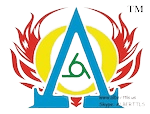The Skill of Living. The Skill of Humans. The Skill of Dynamics.
Abstract
This paper discusses the essential 21st-century life skills for individuals to succeed in today's rapidly changing world. The skills identified include critical thinking and problem-solving, communication, collaboration and teamwork, digital literacy, adaptability and flexibility, empathy and cultural competence, and creativity and innovation. The paper highlights the importance of these skills for personal and professional success and provides references to support the significance of these skills in the current job market. Developing these skills requires education, training, and practical experience.
Introduction
In the 21st century, life skills have evolved from traditional reading, writing, and arithmetic skills to skills necessary for individuals to thrive in today's complex and interconnected world. The modern world gets characterized by rapid technological advancements, globalization, and increased diversity, resulting in new challenges and opportunities. In this context, life skills are the abilities and competencies individuals need to navigate the complexities of modern life, achieve their goals, and improve their well-being.
The following article will explore 21st-century life skills, their importance, and how they can develop.
Critical thinking and problem-solving skills are essential 21st-century life skills. These skills involve analyzing information, evaluating different perspectives, and making informed decisions based on evidence. Critical thinking and problem-solving skills are necessary in almost every aspect of life, including work, education, and personal relationships. According to a World Economic Forum (WEF) study, critical thinking and problem-solving skills are among the top skills employers seek in job candidates (WEF, 2020). Individuals with these skills are better equipped to handle complex situations, find innovative solutions, and adapt to changing circumstances.
Another essential 21st-century life skill is communication. Communication involves conveying ideas and information effectively, both verbally and in writing. Effective communication is critical in all areas of life, including personal relationships, education, and work. According to a survey by the National Association of Colleges and Employers (NACE), communication skills are among the top skills employers seek in job candidates (NACE, 2020). Individuals with strong communication skills are better able to build and maintain relationships, negotiate effectively, and collaborate with others.
Collaboration and teamwork are also crucial 21st-century life skills. In today's world, many tasks and projects require the input of multiple people with different skills and perspectives. Collaboration involves working together towards a common goal, while teamwork involves sharing responsibilities and supporting each other to achieve a common goal. According to the WEF (2020), teamwork and collaboration are among the top skills that employers seek in job candidates. Individuals with these skills are better able to work effectively in groups, build strong relationships, and achieve their goals.
Digital literacy is another essential 21st-century life skill. Digital literacy involves using technology effectively and efficiently to achieve one's goals. In today's world, technology is an integral part of almost every aspect of life, from communication to work to education. Individuals with strong digital literacy skills are better equipped to navigate technology, communicate effectively online, and use technology to achieve their goals. According to the WEF (2020), digital literacy is among the top skills that employers seek in job candidates.
Adaptability and flexibility are also crucial 21st-century life skills. In today's rapidly changing world, individuals must adapt to new situations, be flexible in their thinking and approach to problems, and be open to new ideas and perspectives. According to the WEF (2020), adaptability and flexibility are among the top skills employers seek in job candidates. Individuals with these skills can better navigate change, learn new skills, and adjust to unique circumstances.
Empathy and cultural competence are also critical 21st-century life skills. In today's diverse world, individuals must understand and appreciate different cultures and perspectives and communicate effectively with people from different backgrounds. Empathy involves the ability to understand and share the feelings of others, while cultural competence consists of the ability to interact effectively with people from different cultural backgrounds. According to the WEF (2020), empathy and cultural competence are among the top skills that employers seek in job candidates. Individuals with these skills are better equipped to build strong relationships, work effectively in diverse teams, and contribute to a more inclusive and equitable society.
Creativity and innovation are also essential 21st-century life skills. In today's rapidly changing world, individuals must be able to think creatively and generate new ideas to solve problems and meet challenges. Creativity involves developing new and innovative ideas, while innovation involves putting those ideas into action. According to the WEF (2020), creativity and innovation are among the top skills employers seek in job candidates. Individuals with these skills can better adapt to change, find new solutions to old problems, and drive progress and growth.
Conclusion
In conclusion, the essential 21st-century life skills are critical thinking and problem-solving, communication, collaboration and teamwork, digital literacy, adaptability and flexibility, empathy and cultural competence, and creativity and innovation. These skills are essential for individuals to thrive in the complex and interconnected world of the 21st century, both in their personal and professional lives. Developing these skills requires a combination of education, training, and practical experience, and individuals who possess these skills are better equipped to succeed in today's ever-changing world.
References:

